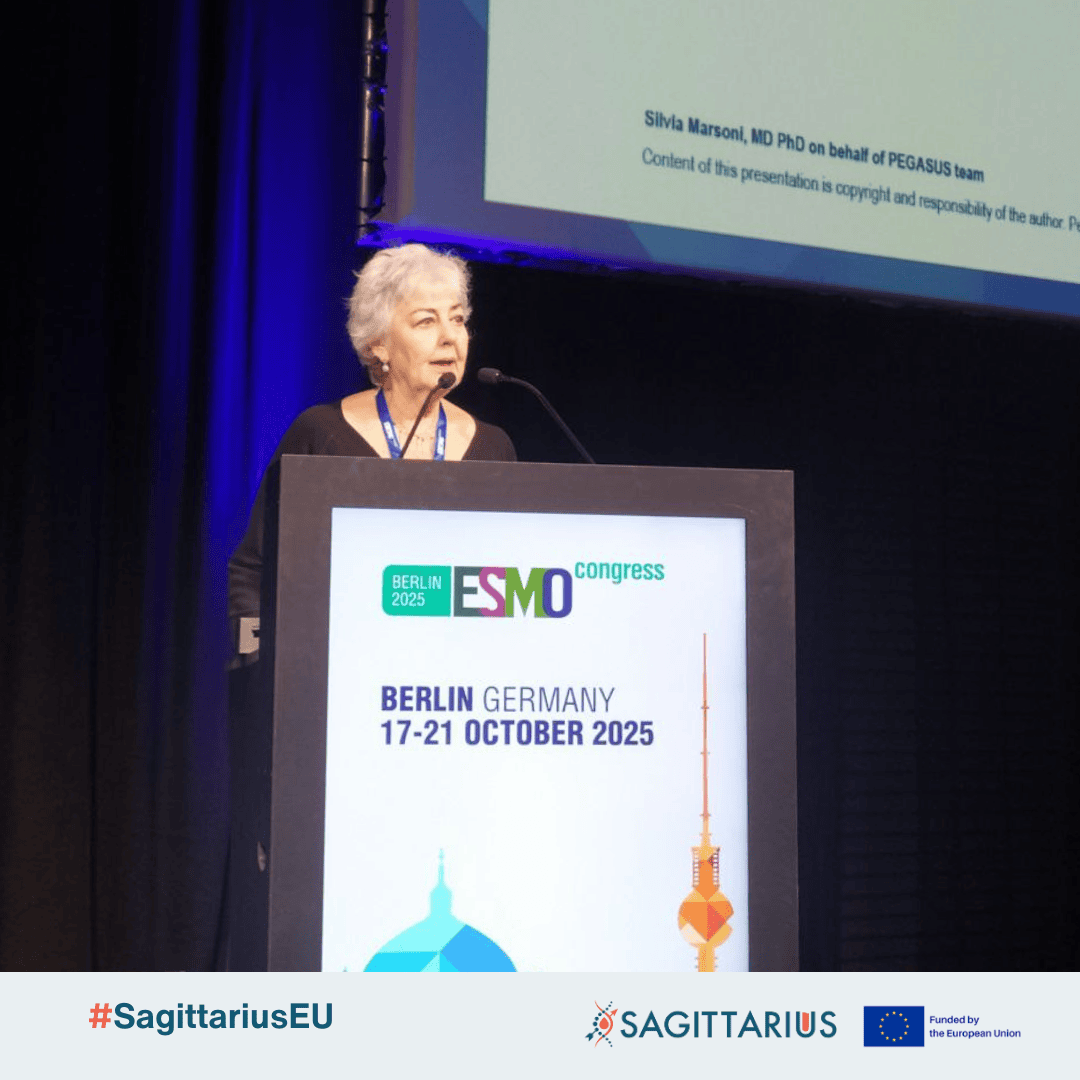Berlin, 18 October 2025
At the ESMO 2025 Congress, taking place in Berlin from 17 to 21 October, the final results of the PEGASUS clinical trial were presented, marking a pivotal moment for the European-funded research project SAGITTARIUS, which focuses on precision medicine in colon cancer.
Dr. Silvia Marsoni, Scientific Coordinator of the SAGITTARIUS project, delivered the presentation during the “Proffered Paper Session 1: GI tumours, lower digestive” at 14:45 on 18 October. Her talk, titled “Post-surgical liquid biopsy-guided treatment of stage III and high-risk stage II colon cancer patients: final results of the PEGASUS trial”, highlighted the clinical value of using post-operative liquid biopsy to guide treatment decisions in colon cancer.
The PEGASUS trial demonstrated that circulating tumor DNA (ctDNA) analysis after surgery can effectively identify patients at higher risk of relapse. This approach enables more personalized treatment strategies, potentially improving outcomes while reducing unnecessary toxicity for patients unlikely to benefit from additional therapy. PEGASUS findings lay the scientific groundwork for SAGITTARIUS, which aims to refine and implement personalized approaches to colon cancer care across Europe.
“PEGASUS has shown us that we can move beyond a one-size-fits-all approach in colon cancer,” said Dr. Marsoni. “By using liquid biopsy to detect minimal residual disease, we can better understand who truly needs additional treatment and who can be spared unnecessary toxicity. This is the future of oncology.”
The presentation was met with strong interest from the oncology community, reinforcing the importance of integrating molecular tools into routine clinical practice for gastrointestinal cancers.
More about SAGITTARIUS
For further information on the SAGITTARIUS project or to participate in its trial, please contact clinical.trials@ifom.eu. To learn more:- Media contact: info@sagittarius-horizon.eu
- Social media: LinkedIn, Facebook, X, Instagram, YouTube
- Subscribe to the SAGITTARIUS newsletter

